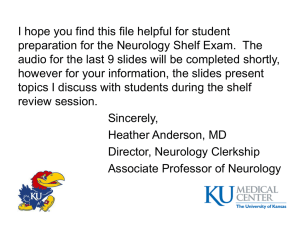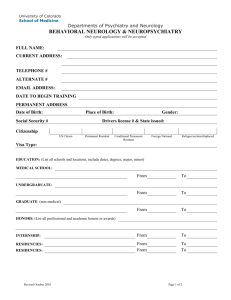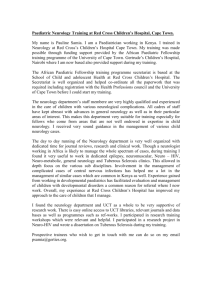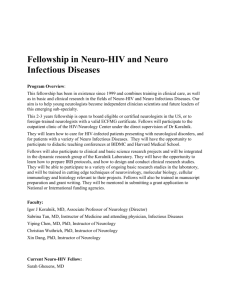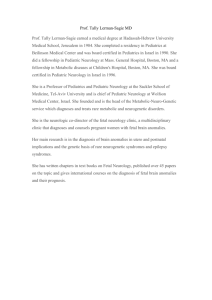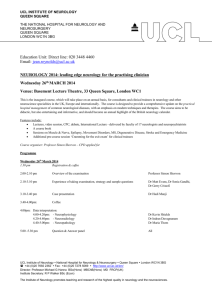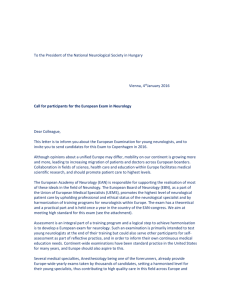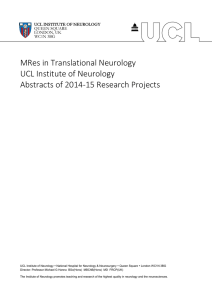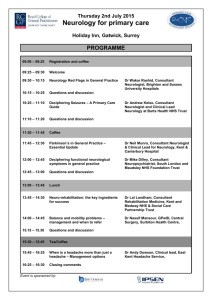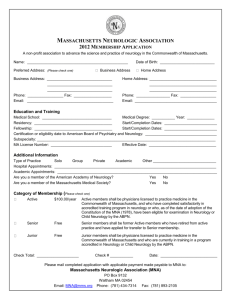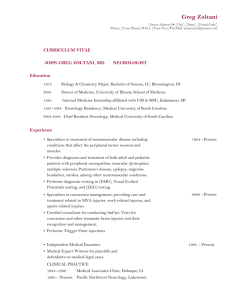Dr. Glen Ackerman - Michigan State University
advertisement
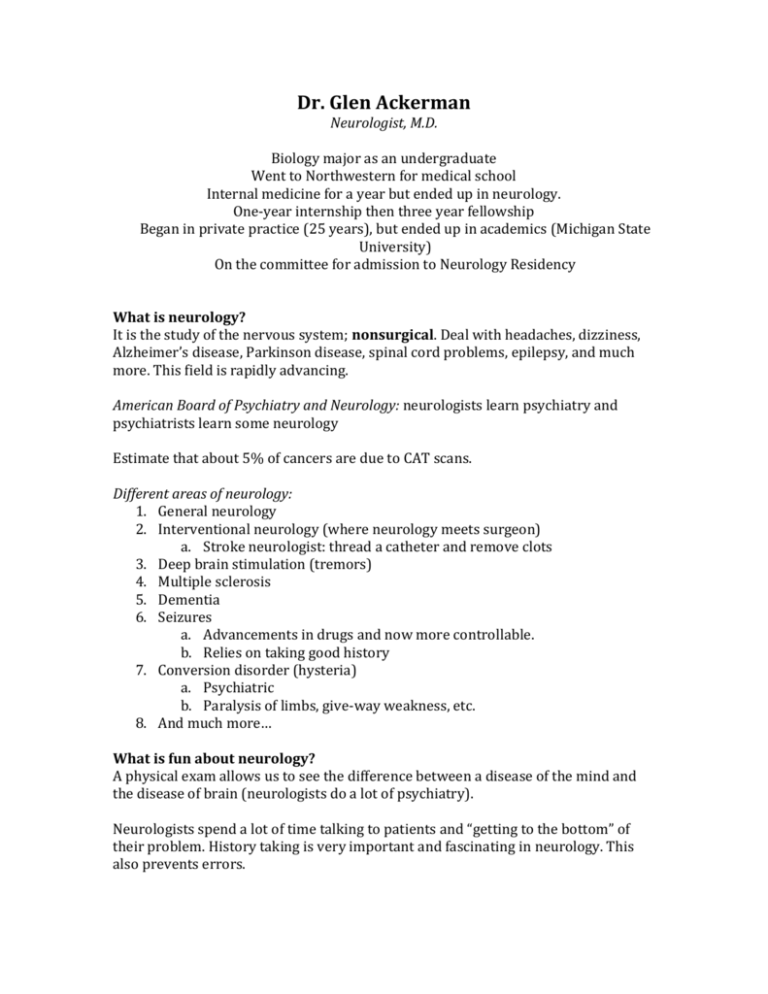
Dr. Glen Ackerman Neurologist, M.D. Biology major as an undergraduate Went to Northwestern for medical school Internal medicine for a year but ended up in neurology. One-year internship then three year fellowship Began in private practice (25 years), but ended up in academics (Michigan State University) On the committee for admission to Neurology Residency What is neurology? It is the study of the nervous system; nonsurgical. Deal with headaches, dizziness, Alzheimer’s disease, Parkinson disease, spinal cord problems, epilepsy, and much more. This field is rapidly advancing. American Board of Psychiatry and Neurology: neurologists learn psychiatry and psychiatrists learn some neurology Estimate that about 5% of cancers are due to CAT scans. Different areas of neurology: 1. General neurology 2. Interventional neurology (where neurology meets surgeon) a. Stroke neurologist: thread a catheter and remove clots 3. Deep brain stimulation (tremors) 4. Multiple sclerosis 5. Dementia 6. Seizures a. Advancements in drugs and now more controllable. b. Relies on taking good history 7. Conversion disorder (hysteria) a. Psychiatric b. Paralysis of limbs, give-way weakness, etc. 8. And much more… What is fun about neurology? A physical exam allows us to see the difference between a disease of the mind and the disease of brain (neurologists do a lot of psychiatry). Neurologists spend a lot of time talking to patients and “getting to the bottom” of their problem. History taking is very important and fascinating in neurology. This also prevents errors. Listen to the patient and ignore them too (using the wrong words, i.e. vertigo). And don’t worry about being sued, because you will be sued. Furthermore, this worry might result in an excessive amount of tests. Can make a diagnosis of Parkinson disease in about 10 seconds. Can tell from mannerisms, motor function, reflexes, speech, etc. What is the difference between dementia and Alzheimer’s? Alzheimer’s is a type of dementia. Not exactly different; one is sub-group of another. Private practice vs. large group (hospital, academic center) There is a lot of pressure in private practice, as there is a lot to keep up on. There are compliance issues, billing issues, and insurance issues, and this is very difficult as a solo private practice. Most people are going into group private practice these days; solo private practices are dying out. People who go to universities love to teach, love to research, and taking care of patients is just one aspect of their job. Advantages for working at a university: can ask people questions in other departments, have someone else do billing, insurance, legal issues, etc. Usually a private practice is better if you’re trying to raise a family. Academic programs are much more time consuming. Very rare to go from private practice to university Worst part of the job? All of the paperwork, excessive computer use, and all the government guidelines This makes it difficult to interact with the patient. Contact him at glen.ackerman@ht.msu.edu Shadowing opportunities are available.
